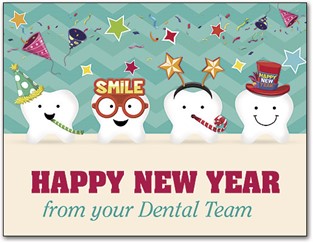HAPPY HEART DAY
HEART HEALTH INCLUDES ORAL HEALTH

The connection between our hearts and our mouths is a strong one, but many people don’t realize the impact their oral health can have on their overall health. That’s why we’re celebrating American Heart Month in February: to bring awareness of that important connection between oral and overall health
If we neglect our oral health, we’re at risk not only for gum disease but also for heart disease . But how does the mouth impact the heart?
Gum disease, like many diseases, causes inflammation. Inflammation in the mouth is considered a potential cause for inflammation elsewhere. Studies show that people with gum disease are two to three times more likely to have a heart attack, stroke, or another cardiovascular event.
Be sure and remember to brush your teeth twice a day and see your dentist or Healthy Smiles Forever here at the facility to help you improve your oral health and your Heart!
If you need any dental care, information or dental supplies we are happy to help. Please call us at 931-0484 or let the court nurse or front desk know to contact us to make an appointment
Happy New Year!

We wish everyone a Happy New Year enjoying friends and family and doing things that bring you joy! Looking forward to helping you maintain good oral health throughout the year!
RESOLUTIONS TO BRING IN THE NEW YEAR SMILING
- Get a dental check-up: Start the New Year off on the right foot and ensure your teeth are healthy.
- Practice good oral hygiene habits: Brush two times a day
- Eat a healthy diet: Eating plenty of fruits and vegetables is good for your overall health, including your teeth and gums.
- Limit sugary and acidic foods and drinks: Too much sugar can lead to cavities, while acidic foods and drinks can erode tooth enamel.
- Avoid using your teeth as tools: Your teeth are for chewing food, not opening bottles or tearing off tags!
- Schedule routine cleanings with your hygienist
Smile! It’s the best way to start the New Year!
Happy Thanksgiving!

Healthy Smiles Forever wishes you a Happy Holiday. We are thankful for all the wonderful residents and staff we have met and work with every week. We are grateful we are here in the facility to help take care of your teeth and help you have a healthy mouth to eat those tasty holiday foods!
If you need any dental care, information, or dental supplies we are happy to help. Please call us at 931-0484 or let the court nurse or front desk know to contact us to make an appointment.

According to the CDC Oral health is essential to general health and well-being. It is the “window” to your body.
The three oral conditions that most affect overall health and quality of life are cavities, severe gum disease, and severe tooth loss.
Good oral/dental health translates to good health overall. Dental problems such as cavities or gum disease can impair your ability to eat and speak properly, cause pain and bad breath. And what many people may not realize, is that poor dental health can have a profoundly, negative affect on areas outside of the mouth, including your heart, diabetes, pregnancy and chronic inflammation, such as arthritis — to name a few. This month is dedicated to promoting healthy mouths all across the country, and celebrating the hard work your favorite dental hygienist does to keep your pearly whites squeaky clean.
Our non-profit dental clinic, Healthy Smiles Forever, is here at the facility. If you need any dental care, information or dental supplies we are happy to help. Please call us at 931-0484 or let the court nurse or front desk know to contact us to make appointment.
(Continued from August newsletter)

- Provide short, simple instructions. Explain dental care by breaking directions into steps. “Brush your teeth” by itself may be too vague. Instead, walk the person through the process. Say: “Hold your toothbrush.” “Put paste on the brush.” Then, “Brush your teeth.”
- Use a “watch me” technique. Hold a toothbrush and show the person how to brush his or her teeth. Find a comfortable position if you must do the brushing yourself. Put your hand over the person’s hand, gently guiding the brush. If the person seems agitated or uncooperative, postpone brushing until later in the day.
- Try different types of toothbrushes. A small soft bristled children’s toothbrush works better than a large adult’s brush. Or a long handled or angled brush is easier to use than a standard toothbrush. Be aware that electric dental brushes may confuse a person with Alzheimer’s.
- Keep dentures clean. If the person wears dentures, rinse them with plain water after meals and brush them daily to remove food particles. Each night, remove them and soak in a cleanser or mouthwash. Then, if needed use a soft toothbrush or moistened gauze pad to clean the gums, tongue and other soft mouth tissues.
- Be aware of potential mouth pain. Investigate any signs of mouth discomfort or jaw swelling during mealtime. Refusing to eat or strained facial expressions while eating may indicate tooth/mouth pain or dentures that don’t fit properly.
- Our non-profit dental clinic, Healthy Smiles Forever, is here at the facility. If you need any dental care, information or dental supplies we are happy to help. Please call us at 931-0484 or let the court nurse or front desk know to contact us to make appointment.
Dementia and Oral Health
The mouth is home to about 700 species of bacteria, including those that can cause periodontal (gum) disease. A recent analysis led by NIA scientists suggests that bacteria that cause gum disease are also associated with the development of Alzheimer’s disease and related dementias, especially vascular dementia. Bacteria and the inflammatory molecules they make can travel from infections in the mouth through the bloodstream to the brain. The results were reported in the Journal of Alzheimer’s Disease in 2020.
Therefore, maintaining good habits throughout the life cycle may prevent the onset of cognitive decline observed in aging adults.
Next month we will cover how to help improve oral health in individuals with Alzheimer’s Disease.
Our non-profit dental clinic, Healthy Smiles Forever, is here at the facility. If you need any dental care, information, or dental supplies we are happy to help. Please call us at 931-0484 or let the court nurse or front desk know to contact us to make an appointment.
July 2023

Every Fourth of July, we Americans celebrate the day we declared ourselves an independent nation. This Independence Day, why not add another pledge: freedom from dental disease.
Tooth decay or gum disease have the same worst case scenario: tooth loss, something that could impact your overall health and nutrition and your appearance. But neither of these harmful conditions has to happen—you and your family can be free of dental disease by consistently following these guidelines:
Brush daily. The root cause for all dental disease is a thin film of bacteria and food particles on tooth surfaces A daily oral hygiene routine is the single best thing you can do to avoid dental disease.
Eat a tooth-friendly diet. The foods you eat can affect your dental health, for good and for ill. Diets heavy in refined sugar and other processed foods are a veritable feast for harmful oral bacteria.
See your dentist regularly. Dental visits further enhance your chances of healthy teeth and gums. Healthy Smiles Forever here at the facility can help detect dental disease in its earliest stages, which can minimize long-term damage. If you need any dental care, information or dental supplies we are happy to help. Please call us at 931-0484 or let the court nurse or front desk know to contact us to make appointment.
Silent Auction Fundraiser

June 2023
Time to Water the Garden?
Time to Rinse your Teeth?


Using a mouth rinse does not take the place of optimal brushing and cleaning between the teeth. Mouth rinses may offer additional benefits for the following conditions:
Reducing bad breath:
Mouthwash only gets rid of bad breath temporarily, usually stops working in under an hour! It can help to remove food particles between the teeth.
Helping to reduce cavities:
Fluoride mouthwash contains sodium fluoride which may help prevent cavities. Rinses with xylitol can help reduce bacteria accumulation on the teeth to prevent decay.
Helping to reduce gum disease:
Chlorhexidine mouth rinses are used to treat gingivitis by destroying the oral bacteria. It helps to reduce the inflammation (redness) and swelling of your gums and to reduce gum bleeding. These mouth rinses can only be prescribed by a dentist and should be used for a limited time. OTC rinses only reduce bacteria and should not be used in place of cleaning your teeth to treat gingivitis.
Relief of dry mouth:
There are many rinses made to help relieve dry mouth. If you suffer from dry mouth, use an alcohol-free mouthwash. Alcohol is a drying agent, and if your mouth is dry mouthwashes that contain alcohol can actually make dry mouth much worse.
Relief of pain from oral sores:
Saltwater rinses can speed healing. OTC rinses are formulated to soothe tissues and promote healing and may be helpful to use until the lesion is resolved.